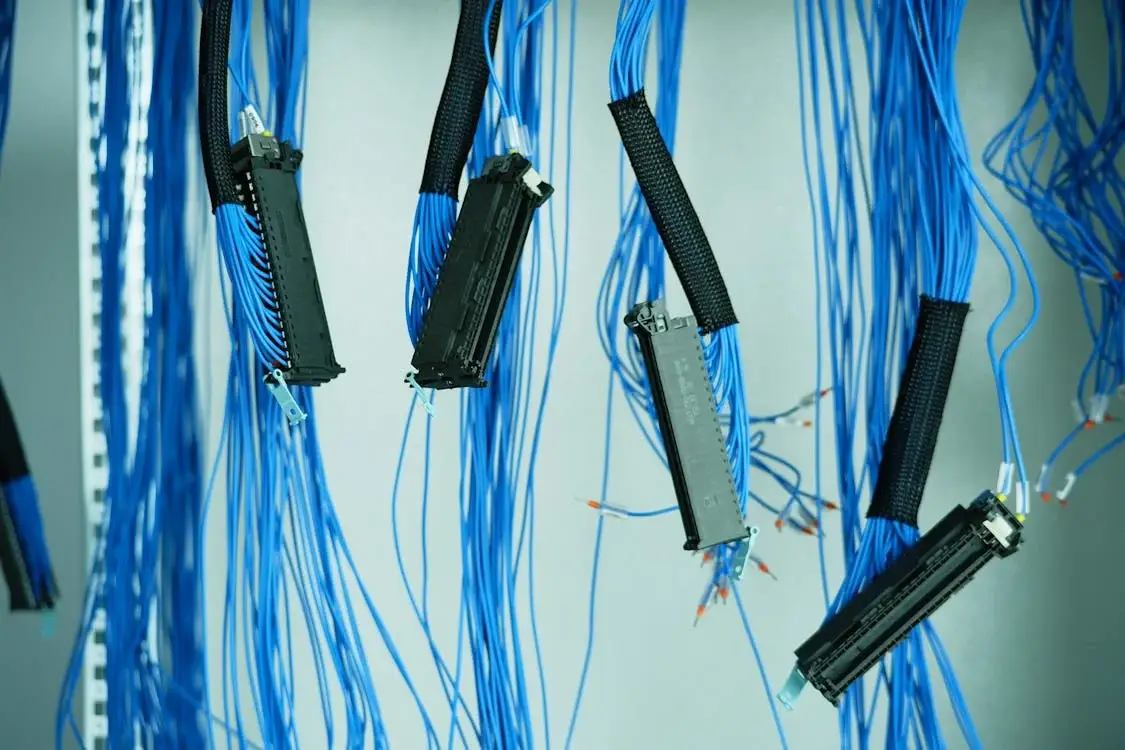Effective communication is crucial for businesses to succeed. From building client relationships to fostering internal collaboration, the tools you use for communication can significantly impact your organization’s efficiency and productivity. One of the most important decisions for businesses is choosing between traditional phone systems and Voice over Internet Protocol (VoIP). Both options have distinct features, advantages, and drawbacks; understanding these differences is essential for making an informed decision.
This article compares VoIP phones and traditional phone systems, exploring their functionality, cost implications, scalability, reliability, and more. Whether you’re a small business owner or part of a large enterprise, this guide will help you determine the best solution to meet your unique communication needs.
Carolina Digital Phone specializes in VoIP technology, offering advanced, cost-effective solutions that cater to modern businesses. Let’s dive into the details to see how these two systems stack up.
Key Takeaways
- Cost Efficiency: VoIP systems offer lower setup and operational costs than traditional phones, leveraging existing internet infrastructure to save businesses money.
- Scalability and Flexibility: VoIP excels in scalability, allowing businesses to add users easily and enabling remote work with mobile apps and internet access.
- Advanced Features: VoIP systems enhance communication and collaboration by providing modern capabilities such as video conferencing, voicemail-to-email, and CRM integration.
- Reliability and Quality: Traditional phones are known for reliability and consistent call quality, while VoIP relies on internet stability but employs advanced technologies to ensure clear communication.
- Security and Emergency Services: VoIP systems require robust cybersecurity measures and proper E911 configuration, while traditional phones offer more straightforward, location-based emergency access.
Traditional phones require costly hardware and are location-bound, while VoIP lets your team work from anywhere with advanced features. Flexibility is the future! 💻📞 #VoIPSolutions #BusinessCommunication #TechForBusiness #DigitalTransformation #FutureOfWork
Understanding the Technologies

Traditional Phone Systems
Traditional phone systems operate on the Public Switched Telephone Network (PSTN), which uses analog signals transmitted through copper wiring. These systems have been a mainstay of communication for decades, offering reliable voice transmission through dedicated lines. The infrastructure supporting traditional phones is extensive, relying on physical exchanges, network hubs, and complex maintenance to ensure seamless functionality.
However, traditional systems come with limitations. They require substantial hardware investment, are location-dependent, and may lack the advanced features modern businesses need, such as integration with digital tools. Traditional systems may still be viable for small-scale operations or those without internet connectivity, but their relevance diminishes as businesses embrace digital transformation.
Voice over Internet Protocol (VoIP) Systems
VoIP technology represents a significant leap forward in communication. Instead of analog signals, VoIP converts voice into digital data packets and transmits them over the internet. This means that businesses can use their existing broadband connection to make and receive calls. Components of a VoIP system include IP phones, softphones (applications on computers or mobile devices), and analog telephone adapters (ATAs) for businesses transitioning from traditional setups.
VoIP’s versatility makes it ideal for modern workplaces. With features like video conferencing, voicemail-to-email, and integration with Customer Relationship Management (CRM) systems, VoIP offers far more functionality than its analog predecessor. Carolina Digital Phone provides tailored VoIP solutions, allowing businesses to enhance productivity and streamline communication processes.
Cost Implications

Cost is a significant factor for businesses evaluating communication systems. Both traditional and VoIP systems have unique cost structures that affect setup, operation, and maintenance.
Initial Setup and Installation
Traditional phone systems often involve hefty upfront costs. These expenses include hardware like PBX (Private Branch Exchange) systems, extensive cabling, and professional installation services. Additionally, businesses must invest in regular upgrades to keep hardware functioning optimally.
In contrast, VoIP systems are more cost-effective. They leverage existing internet infrastructure, reducing the need for dedicated hardware. Carolina Digital Phone simplifies installation with minimal equipment requirements, making it an ideal choice for businesses looking to save on setup costs.
Operational and Maintenance Costs
Traditional systems incur ongoing expenses such as line rental fees, long-distance charges, and maintenance of physical infrastructure. For international calls, costs can quickly escalate, making traditional systems less viable for businesses with global operations.
VoIP systems, however, are known for their predictable and affordable pricing models. Providers like Carolina Digital Phone offer flat-rate plans with unlimited domestic calls and competitive international rates. Software-based updates eliminate costly hardware maintenance, further reducing operational expenses.
| Cost Comparison | Traditional Phones | VoIP Phones |
| Setup Costs | High (wiring, PBX, etc.) | Low (internet-based setup) |
| Monthly Fees | Varies with usage | Fixed, predictable rates |
| Maintenance Costs | High (hardware upgrades) | Low (software updates) |
| Long-distance Charges | Expensive | Minimal |
With a VoIP system from Carolina Digital Phone, businesses can achieve significant cost savings without compromising on features or quality.
Scalability and Flexibility

Traditional Phone Systems
Scaling traditional phone systems can be a logistical and financial challenge. Adding new users requires installing additional lines, purchasing new equipment, and sometimes upgrading the PBX system. These processes are time-consuming and costly, limiting the flexibility of traditional systems.
Moreover, traditional phones are tied to specific locations, making them unsuitable for businesses with remote or hybrid work models. Mobility is virtually nonexistent, hindering productivity in a fast-paced, dynamic business environment.
VoIP Systems
VoIP systems excel in scalability and flexibility. Adding new users is as simple as configuring software, eliminating the need for physical infrastructure changes. This feature makes VoIP systems ideal for businesses experiencing rapid growth or seasonal fluctuations in workforce size.
VoIP also supports mobility, allowing employees to work from anywhere with an internet connection. Carolina Digital Phone’s solutions include mobile apps and remote access capabilities, ensuring businesses can maintain seamless communication regardless of location. This adaptability empowers businesses to respond quickly to market demands and evolving work environments.
Features and Functionality

Traditional Phone Systems
Traditional phones provide essential features such as voicemail, caller ID, and call waiting. While reliable, these systems lack advanced functionalities, which can limit productivity. They are also isolated from modern tools like CRM systems, making them less suitable for businesses that rely on integrated workflows.
VoIP Systems
VoIP systems offer a comprehensive suite of features that enhance communication and collaboration. Carolina Digital Phone’s VoIP services include:
- Call forwarding: Redirect calls seamlessly to ensure availability.
- Voicemail-to-email: Receive voicemails as email attachments for convenience.
- Video conferencing: Collaborate in real-time, regardless of location.
- CRM integration: Sync communication tools with business software for streamlined workflows.
- IP Paging: The process of sending a message or alert to a device over an IP network.
- Unified communications: Combine voice, video, messaging, and file sharing into a single platform.
These advanced features improve efficiency and create a professional image for businesses, fostering better customer relationships.
Reliability and Call Quality

Traditional Phone Systems
Traditional phone systems are known for their reliability. Their dedicated lines ensure consistent call quality, which is unaffected by internet connectivity issues. Additionally, these systems remain operational during power outages due to their independent power supply.
VoIP Systems
VoIP call quality depends on the strength and stability of the internet connection. Issues like latency or jitter can arise if the network is congested. However, technological advancements have minimized these challenges. Carolina Digital Phone uses quality-of-service (QoS) protocols to prioritize voice traffic, ensuring clear, reliable communication.
During power outages, VoIP systems may require backup power solutions. Carolina Digital Phone offers guidance on implementing battery backups or failover options to maintain uninterrupted communication.
Security Considerations

Traditional Phone Systems
While traditional phone lines are less vulnerable to cyberattacks, they are not immune to security risks. Physical tapping of lines and unauthorized access to PBX systems can compromise sensitive information.
VoIP Systems
VoIP systems rely on the internet, making them more susceptible to cyber threats. Carolina Digital Phone mitigates these risks by implementing robust encryption protocols, firewalls, and regular software updates. By partnering with a trusted provider, businesses can maintain secure communication while benefiting from VoIP’s advanced features.
Emergency Services Access
Traditional Phone Systems
Traditional phones provide automatic location identification for emergency services, making them reliable in critical situations.
VoIP Systems
VoIP systems require configuration to ensure accurate location tracking for emergency responders. Carolina Digital Phone assists businesses in setting up Enhanced 911 (E911) services to ensure safety and regulatory compliance.
Making the Right Choice for Your Business
Choosing the right communication system depends on several factors, including budget, scalability, and future needs. For businesses prioritizing cost-efficiency, flexibility, and advanced features, VoIP is the clear choice. Carolina Digital Phone offers tailored VoIP solutions that combine affordability with cutting-edge technology, helping businesses stay competitive and agile.
Conclusion: VoIP vs Traditional Phone Systems
The decision between VoIP and traditional phone systems hinges on understanding your business’s unique requirements. While conventional systems offer stability, VoIP provides unmatched flexibility, scalability, and features suited for today’s dynamic business environment. Carolina Digital Phone delivers reliable and cost-effective VoIP solutions, empowering businesses to thrive in an increasingly digital world.
Transform your business communication with Carolina Digital Phone’s reliable, cost-effective VoIP solutions—get started today!
Further Reading
To delve deeper into the topic of VoIP and traditional phone systems, here are some additional resources that provide valuable insights:
- What Is VoIP? Voice Over IP Calling Explained – How-To Geek: This article offers a clear explanation of VoIP technology, detailing how it works, its advantages over traditional phone systems, and the requirements for making VoIP calls.
- 12 Most Important VoIP Statistics for 2024 – Tech.co: This statistical overview provides insights into VoIP usage, cost savings, market growth, and the impact of VoIP on business communications, supported by relevant data
- Moving Your Business Phone System to a New Office – CarolinaDigitalPhone.com: This article outlines the steps to prepare for a move. Transferring your telephone system, phone numbers, and related services is vital to a smooth office move.

